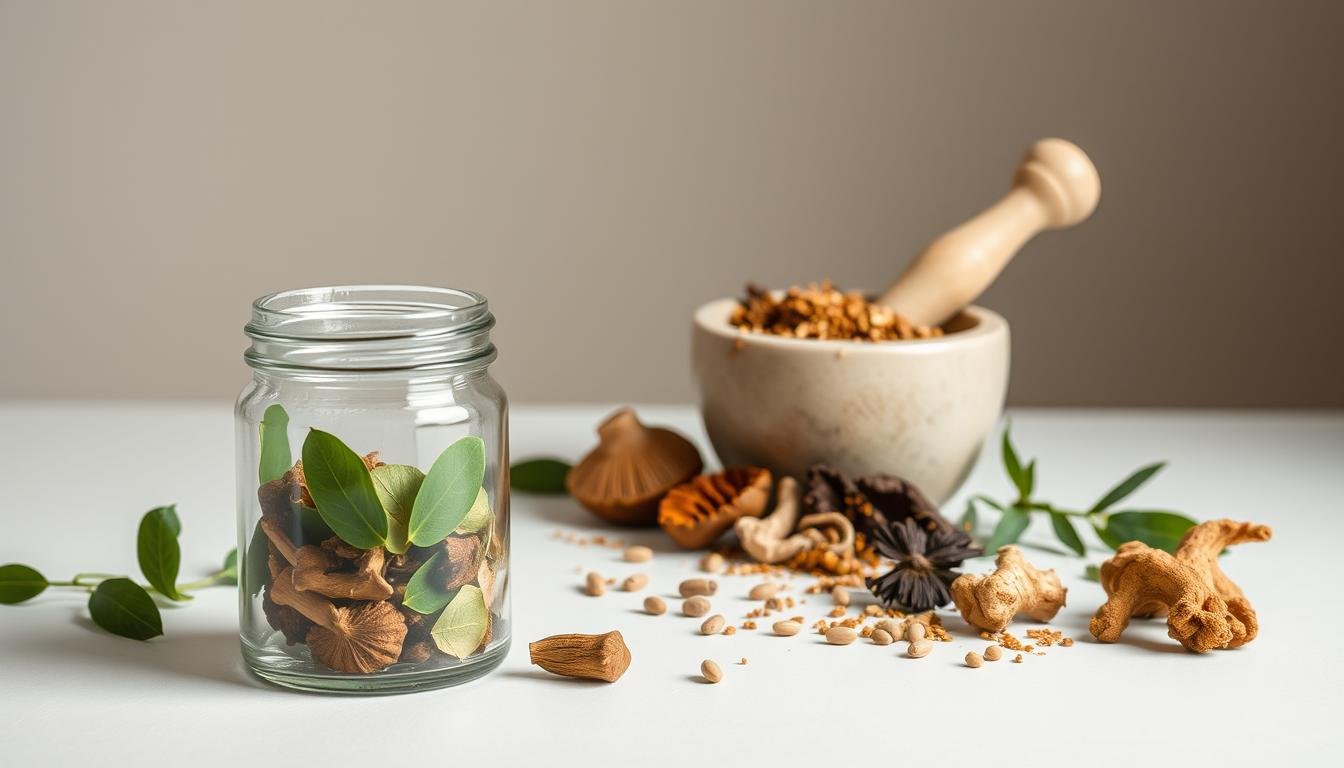Do you know how important drinking water is for your health? It’s key for many bodily functions. It helps control body temperature and moves nutrients and oxygen to cells.
The importance of drinking water is huge. It directly affects your health. Not drinking enough can cause mild fatigue to serious health problems.
Key Takeaways
- Drinking water is essential for maintaining bodily functions.
- Adequate hydration supports overall health and well-being.
- Dehydration can lead to various health issues.
- Proper hydration is crucial for physical performance.
- Drinking enough water can help manage weight.
- Staying hydrated supports skin health.
The Importance of Hydration for Daily Living
Hydration is key to our daily lives. It helps our bodies work right and recover well. Knowing how to stay hydrated is crucial for our health.
Understanding Hydration
Hydration means giving our bodies enough fluids. Water is about 60% of our body weight. It’s vital for cell functions, keeping us cool, and moving nutrients and waste.
Key aspects of hydration include:
- Maintaining fluid balance within the body
- Regulating body temperature
- Facilitating the transport of nutrients and oxygen to cells
- Removing waste products
Why Drink Water?
Drinking water keeps us hydrated. It’s needed for many body functions, like:
- Energy production: Even a little dehydration can make us tired.
- Physical performance: Hydration is key for athletes and active people.
- Cognitive function: Dehydration can hurt our focus and memory.
In short, knowing about hydration and drinking enough water is vital. It helps keep us healthy and supports our body’s daily needs.
How Water Intake Supports Body Functions
Water is key for many body functions that keep us healthy. Drinking enough water helps keep our body balanced. It makes sure our body’s processes work well.
Key Bodily Functions Powered by Water
Water is important for many body functions. It helps with chemical reactions, keeps joints lubricated, and controls body temperature. It also keeps skin, muscles, and organs healthy. The hydration benefits are many, from better physical performance to sharper thinking.
Some key functions include:
- Regulating body temperature through sweating
- Lubricating joints to reduce friction and wear
- Facilitating the digestion process and nutrient absorption
- Transporting nutrients and oxygen to cells
- Removing waste products from the body
The Role of Water in Digestion
Water is vital for digestion. It helps break down nutrients and minerals, making them easier for the body to use. Water intake also helps prevent constipation by softening stool. It also helps avoid some stomach problems.
The digestive system needs water to work right. This shows how important optimal hydration levels are for good digestion.
Water and Nutrient Transportation
Water is key for moving nutrients and oxygen to cells. It’s a big part of blood, which carries these important things to tissues and organs. Drinking enough hydration helps cells get what they need to function well.
Water also helps get rid of waste from the body. This supports our health and well-being.
Understanding Body Balance and Hydration
The connection between body balance and hydration is key to how our bodies work every day. Our bodies are about 60% water, which is vital for many bodily functions, including balance.
What is Body Balance?
Body balance means keeping a steady posture and avoiding falls. It’s a mix of signals from our eyes, inner ear, and muscles. Drinking enough water helps these systems work best.
Symptoms of Dehydration
Dehydration happens when we lose more water than we take in. This can make it hard for our bodies to do their jobs. Signs include dizziness, tiredness, and dry mouth. If it gets worse, it can cause serious problems.
The Connection Between Hydration and Balance
Drinking enough water is crucial for balance. Even a little dehydration can mess with our balance and coordination. Staying hydrated keeps our body’s systems in check, supporting balance.
Hydration’s Role in Energy Levels
Water is key to our daily energy. Even a little dehydration can make us tired, give us headaches, and make it hard to focus. This shows how important it is to drink enough water to stay energized.
How Hydration Affects Energy
Water helps our bodies work right. It carries nutrients and oxygen to our cells, keeps our temperature stable, and gets rid of waste. Without enough water, our bodies slow down, making us feel tired and less productive.
Key ways hydration impacts energy include:
- Regulating body temperature to maintain optimal energy levels.
- Facilitating the transport of nutrients and oxygen to cells.
- Aiding in the removal of waste products that can cause fatigue.
Knowing how water helps our energy, we can drink more water to stay energized all day.
Tips for Staying Hydrated
To keep your energy up with water, try these tips:
- Drink water regularly all day, not just in one go.
- Monitor your urine to make sure it’s pale yellow, which means you’re drinking enough.
- Eat hydrating foods like watermelon, cucumbers, and celery to help meet your water needs.
- Avoid dehydrating beverages like those with lots of caffeine and sugar.
Adding these habits to your day can help you stay hydrated and keep your energy up.

Drinking enough water is a simple way to keep your energy up and feel better. By focusing on water and healthy drinking habits, you can boost your energy and cut down on tiredness.
Water Intake and Skin Health
Drinking enough water is key for healthy skin. It makes your skin look better and stay healthy.
The Impact of Hydration on Skin
Hydration keeps your skin elastic and smooth. When you drink enough water, your skin glows. But, not drinking enough can make your skin dry and wrinkly.
Water’s role in skin health is important. It helps in several ways:
- Maintaining skin elasticity
- Supporting the skin’s natural barrier function
- Flushing out toxins that can cause skin issues
Tips for Glowing Skin Through Hydration
To get glowing skin, you need more than just water. It’s about staying hydrated and healthy.
Here are some tips for staying hydrated and promoting skin health:
| Tip | Description | Benefit |
|---|---|---|
| Drink water regularly | Consume at least 8 glasses of water a day | Maintains skin hydration |
| Eat hydrating foods | Incorporate foods with high water content into your diet | Supports overall hydration |
| Avoid dehydrating beverages | Limit or avoid caffeine and alcohol | Prevents dehydration |
By following these tips, you can improve your skin’s health. This will make your skin look healthier and more radiant.
Hydration and Weight Management
Drinking enough water is key to managing weight and staying healthy. It helps with many body functions that affect weight.
The Impact of Water on Weight Loss
Drinking water can really help with weight loss. It boosts metabolism, reduces hunger, and improves workout performance. A hydrated body burns fat better, moves nutrients, and gets rid of waste.
Increasing water intake is easy. Just make a few changes in your daily life. For example, drinking water before meals can cut down on calories by making you feel full.
Drinking Water Before Meals
Drinking water before meals is a simple way to manage weight. It can lower calorie intake by making you feel full. Studies show that those who drink water before meals lose more weight than others.
Here are some practical tips to drink water before meals:
- Drink a glass of water at least 30 minutes before each meal.
- Make it a habit by keeping a water bottle near your dining table.
- Infuse your water with slices of lemon or lime for added flavor.
A study in a health journal found that drinking water before meals leads to more weight loss. The table below shows the results:
| Group | Weight Loss (Average) | Water Intake Before Meals |
|---|---|---|
| Group A | 5 kg | Yes |
| Group B | 2 kg | No |
A health expert says, “Staying hydrated is key to health and helps with weight management.”
“Drinking water is not just about quenching thirst; it’s about supporting overall bodily functions that contribute to effective weight management.”

In conclusion, drinking enough water is vital for managing weight. By understanding water’s role in weight loss and adding simple habits like drinking water before meals, you can reach your weight goals.
Hydration and Physical Performance
Keeping your body hydrated is key for top performance. When you exercise, you lose water through sweat. If you don’t replace it, you can get dehydrated.
Dehydration hurts your performance, causing muscle cramps, tiredness, and dizziness. Even a little dehydration can lower your athletic performance. So, athletes must focus on staying hydrated.
The Importance of Water During Exercise
Water helps control your body’s temperature and moves nutrients and oxygen to your cells. It also keeps your joints and muscles working right during exercise.
“Proper hydration is essential for athletes to perform at their best. Dehydration can lead to decreased performance, increased risk of injury, and heat-related illnesses.”
A study showed that losing just 2% of your body weight to dehydration can really hurt your performance. So, staying hydrated is key for keeping your endurance and strength up during exercise.
Hydration Strategies for Athletes
Athletes can use several ways to stay hydrated. These include:
- Drinking water before, during, and after exercise
- Checking your urine color to see if you’re hydrated
- Drinking electrolyte-rich drinks during long activities
- Adjusting how much you drink based on how much you sweat
| Hydration Strategy | Description | Benefits |
|---|---|---|
| Pre-exercise hydration | Drink water 2-3 hours before exercise | Ensures proper hydration before activity |
| Hydration during exercise | Drink water at regular intervals | Maintains hydration levels and performance |
| Post-exercise hydration | Replenish fluids after exercise | Aids in recovery and rehydration |
In conclusion, hydration is a critical component of physical performance. By understanding the importance of water during exercise and using good hydration strategies, athletes can improve their performance and reach their goals.
The Mental Benefits of Staying Hydrated
Staying hydrated is key for our physical and mental health. Proper hydration plays a significant role in our mental health. It affects our mood, how well we think, and our overall mental state.
Dehydration can make us less focused, forgetful, and upset. Even a little dehydration can hurt our thinking and mood. This shows how important it is to drink enough water for our mental health.
Water and Mood Regulation
Hydration and mood are closely linked. Water intake affects the body’s serotonin levels. Serotonin helps control our mood. Not enough water can lower serotonin, making us feel anxious, sad, or irritable.
Drinking enough water helps keep our mood balanced. Studies show that even a bit of dehydration can upset our mood. So, we need to drink enough water.
Hydration’s Impact on Cognitive Function
Hydration also affects how well we think, remember, and perform tasks. Adequate hydration is essential for maintaining focus and mental clarity. Without enough water, we can’t think as well, work as efficiently, or be as productive.
The brain is very sensitive to dehydration. Even a small amount can make it hard to concentrate and remember things. This shows how important it is to stay hydrated for our brain’s best performance.
In conclusion, staying hydrated is vital for our physical and mental health. By understanding how hydration affects our mood and thinking, we see why maintaining body hydration is crucial for our overall well-being.
How to Measure Your Hydration Level
Knowing your hydration level is key for good health. It affects your energy and skin health. So, it’s important to keep your body optimally hydrated.
To check your hydration, look for signs and use tools to monitor it.
Signs of Good Hydration
Good hydration shows in several ways. These include:
- Clear or pale yellow urine
- Regular bowel movements
- Normal blood pressure
- Adequate energy levels
- Healthy skin
When you’re hydrated, your body works well. It can regulate temperature and help with physical activities.
Tools and Techniques for Monitoring Hydration
There are many ways to check your hydration:
- Urine Color Test: Check your urine color. It should be clear or pale yellow.
- Hydration Apps: Use apps to track your water intake. They help you meet your daily goals.
- Body Weight Monitoring: Regularly weigh yourself. Losing a lot of weight can mean you’re dehydrated.
- Physical Performance Monitoring: Notice how you do during exercise. It can show if you’re hydrated.
Using these tools and knowing the signs of good hydration helps. You’ll enjoy better energy and health.
If you want to increase water intake, try reminders, hydrating foods, and keep water handy.
Best Sources of Hydration Beyond Water
Drinking water is key, but eating hydrating foods and drinks helps too. These can add to your hydration, making it easier to stay hydrated all day.
Foods High in Water Content
Eating foods with lots of water is a smart way to stay hydrated. Fruits and veggies are full of water and nutrients. For example, cucumbers are about 96% water, making them super hydrating.
Watermelon and strawberries are also great for staying hydrated. Other hydrating foods include celery, tomatoes, and bell peppers. Adding sliced cucumbers to salads or snacking on watermelon can be refreshing.
Herbal Teas and Other Hydration Options
Some drinks can also help with hydration. Herbal teas are hydrating and good for your health. Chamomile tea and peppermint tea are tasty choices, hot or cold.
Coconut water is full of electrolytes, great for after workouts or when sick. Low-sugar sports drinks are also good for intense exercise.
Trying different ways to stay hydrated can make it more fun and effective. Whether it’s through food or drinks, there are many ways to keep your body hydrated.
Making Hydration a Daily Habit
It’s important to make drinking water a regular part of your day. Knowing why water is key is the first step. This helps make it a habit you can keep up every day.
Practical Strategies for Hydration
There are easy ways to drink more water. Start by drinking a glass of water when you wake up. Carry a refillable water bottle with you all day. These steps help you drink more water without even thinking about it.
Creating a Personalized Hydration Schedule
Make a hydration plan that works for you. Set reminders to drink water at certain times, like before meals and before bed. This way, you’ll enjoy the benefits of staying hydrated and make it a lasting habit.
By adding these habits to your routine, you’ll find drinking water easy and beneficial. It will help improve your overall health and well-being.



